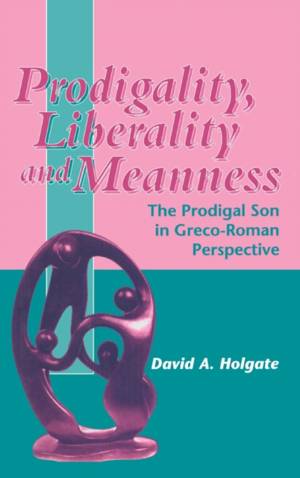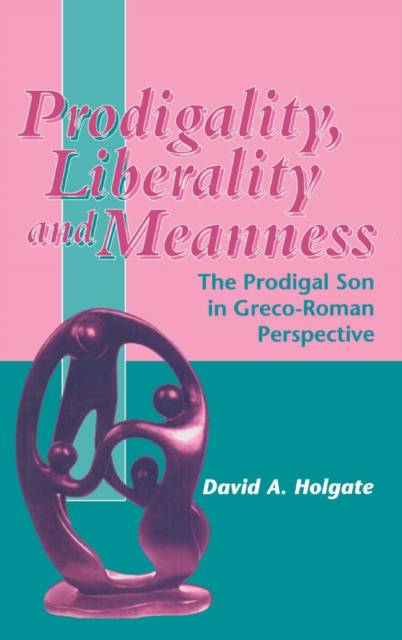
- Afhalen na 1 uur in een winkel met voorraad
- Gratis thuislevering in België vanaf € 30
- Ruim aanbod met 7 miljoen producten
- Afhalen na 1 uur in een winkel met voorraad
- Gratis thuislevering in België vanaf € 30
- Ruim aanbod met 7 miljoen producten
€ 415,95
+ 831 punten
Omschrijving
This monograph interprets the parable of the Prodigal Son (Lk. 15.11-32) in the light of Graeco-Roman popular moral philosophy. Luke's special parables are rarely studied in this way, but the results of this study are very fruitful. The unity of the parable is supported, and it is shown to be deeply concerned with a major Lukan theme: the right use of possessions. The whole parable is read in terms of the moral topos 'on covetousness', and shown to be an endorsement of the Graeco-Roman virtue of liberality, modified by the Christian virtue of compassion.
Specificaties
Betrokkenen
- Auteur(s):
- Uitgeverij:
Inhoud
- Aantal bladzijden:
- 299
- Taal:
- Engels
- Reeks:
Eigenschappen
- Productcode (EAN):
- 9781841270258
- Verschijningsdatum:
- 1/08/1999
- Uitvoering:
- Hardcover
- Formaat:
- Genaaid
- Afmetingen:
- 156 mm x 230 mm
- Gewicht:
- 603 g

Alleen bij Standaard Boekhandel
+ 831 punten op je klantenkaart van Standaard Boekhandel
Beoordelingen
We publiceren alleen reviews die voldoen aan de voorwaarden voor reviews. Bekijk onze voorwaarden voor reviews.










